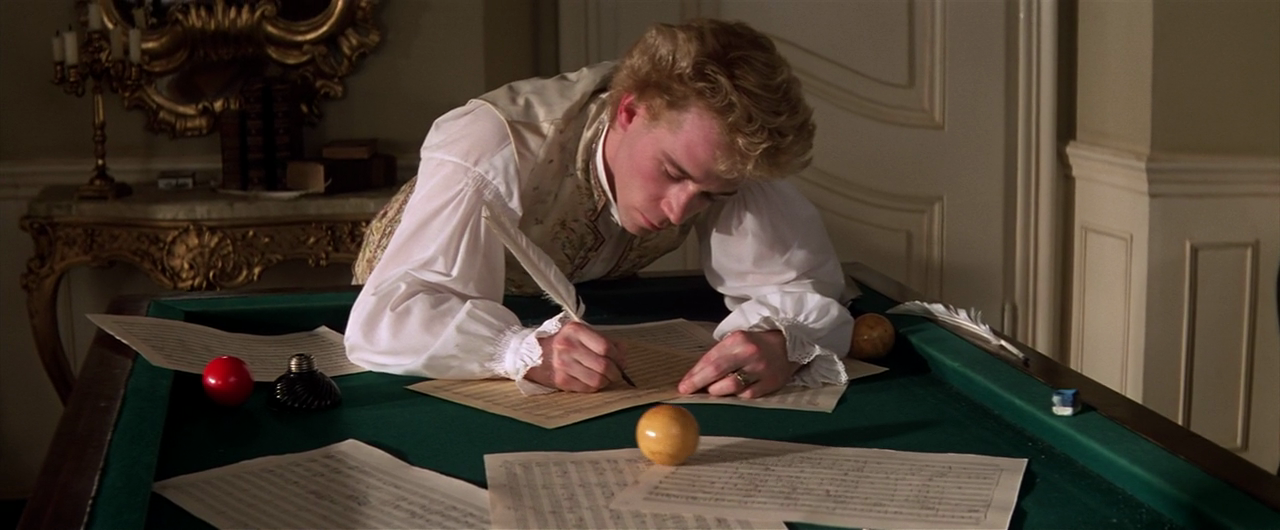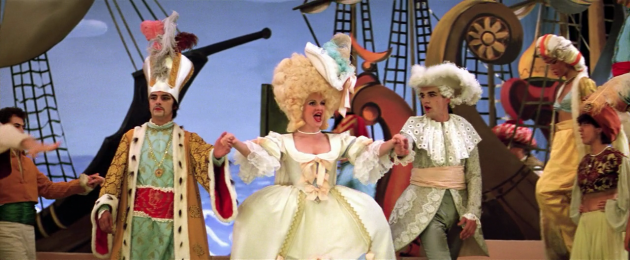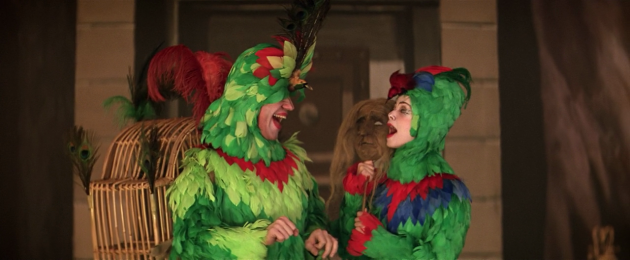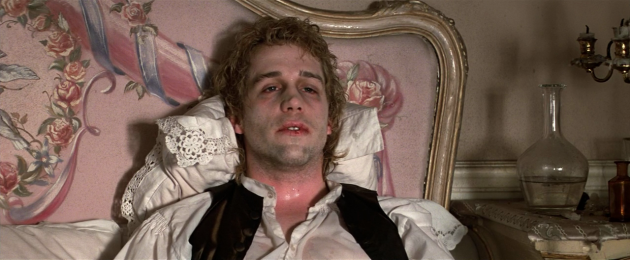Of Mozart’s German Singspiels, two stand out. Firstly, the less popular, but brilliant “Abduction from the Seraglio,” a classic example of the rescue opera sub-genre, in which the heroine, Konstanze is kidnapped by Pasha Selim. It’s at this point that we return to the idea of “alla turca”, because much of the music from this work is inspired, very tenuously, by Turkish janissary bands. I’ll leave it for others to discuss the stereotypes employed by works such as this, but suffice it to say that during Mozart’s lifetime The Ottoman Empire was stagnating, and was no longer as dangerous to Austria as it had once been. As a result, it had become fashionable to appropriate aspects of Turkish culture, and to a certain extent, to ridicule them. Like compositions inspired by gypsy melodies (yes, Zach Condon turned up late to that particular party), Turkish music became an excuse to use certain exotic instruments, especially percussion, as well as unusual dynamics, rhythms and melodies. He are a few of the highlights from this lighthearted piece:
Overture:
Singt dem grossen Bassa Lieder:
Martern aller Arten, sung by the unbelievably brilliant Diana Damrau – listen out for the insane scales at the end:
Vivat Bacchus, Bacchus lebe, probably Mozart’s best drinking song:
Ha! Wie will ich triumphieren, a song all about gleefully hanging people:
And the Turkish Finale:
Zauberton
Mozart’s final work for the stage is also one of his most famous – Die Zauberflöte – The Magic Flute. The libretto of this work was written by the theatrical impresario Emanuel Schikaneder, who also played the part of Papageno the birdcatcher in the original production. Taken at face value, the story is bizarre and fantastical, but closer inspection of the work yields a number of allegorical interpretations, most obviously in terms of a conflict between superstition, embodied by The Queen of the Night, and Enlightened absolutism, epitomised by Sarastro. The piece also contains a number of more explicit messages, which are hopelessly but beautifully idealistic: the importance of music as a consolation in life and as a power for good in the world, the value of forgiveness over revenge, of truth over lies, and the need to make sacrifices for love. There are two love stories in the piece – one between Tamino and Pamina, which no one cares about, and the other between Papageno, the perpetual underdog, and Papagena, which is more entertaining. The Magic Flute is also less than subtle in its glorification of The Freemasons – both Mozart and Schikaneder were members (no conspiracy theories, please), and the main protagonists Tamino and Papageno are made to undergo a series of trials in order to join “The Initiated”. Freemasonry in the 18th century, however, was not just about a load of old men wearing aprons, but involved the promotion of Enlightenment values and learning more generally. Much has been made of Mozart’s use of the number three in musical phrases of the Magic Flute and other works, but personally I think this kind of occult analysis is slightly distracting. Here are a few extracts from this timeless work:
Overture – wait for the slow introduction to finish, and then imagine Mozart dancing around with a candlestick:
Der Vogelfänger bin ich ja – Papageno’s opening number, sung here by the energetic Simon Keenlyside:
Bei Männern welche Liebe fühlen, a duet about love:
Ach, ich fühl’s, Pamina’s heartbreaking aria of loss:
Wie stark ist nicht dein Zauberton:
Ein mädchen oder weibchen – Papageno gets drunk and explains how he wants a girlfriend or a wife. Possibly my favourite silly bit of opera ever, mainly thanks to the infectious glockenspiel part:
Papageno and Papagena’s ridiculous final duet after they are reunited:
And lastly, the two brilliant and notoriously difficult arias from the Queen of the Night, with their famous screechy high notes. Here the regal Diana Damrau makes them sound easy:
O zittre nicht, mein lieber Sohn, in which the Queen of the Night tells Tamino to rescue her daughter:
Der Hölle Rache kocht in meinem Herzen – literally: Hell’s revenge cooks in my heart, and it certainly sounds like it. One of the most famous arias ever written:
Exhausted? You should be. I’ve run out of superlatives for Mozart. He was, quite simply, one of the best humans ever. Here’s something to help you sleep after that musical marathon:
Other Classicals:
#1 – Roll Over Beethoven: An Introduction to Beethoven
#3 – Tch-Tch-Tch Tchanges: An Introduction to Tchaikovsky
#4 – Schubert Dip: An Introduction to Schubert
#5 – Bach To The Future: An Introudction to Bach




